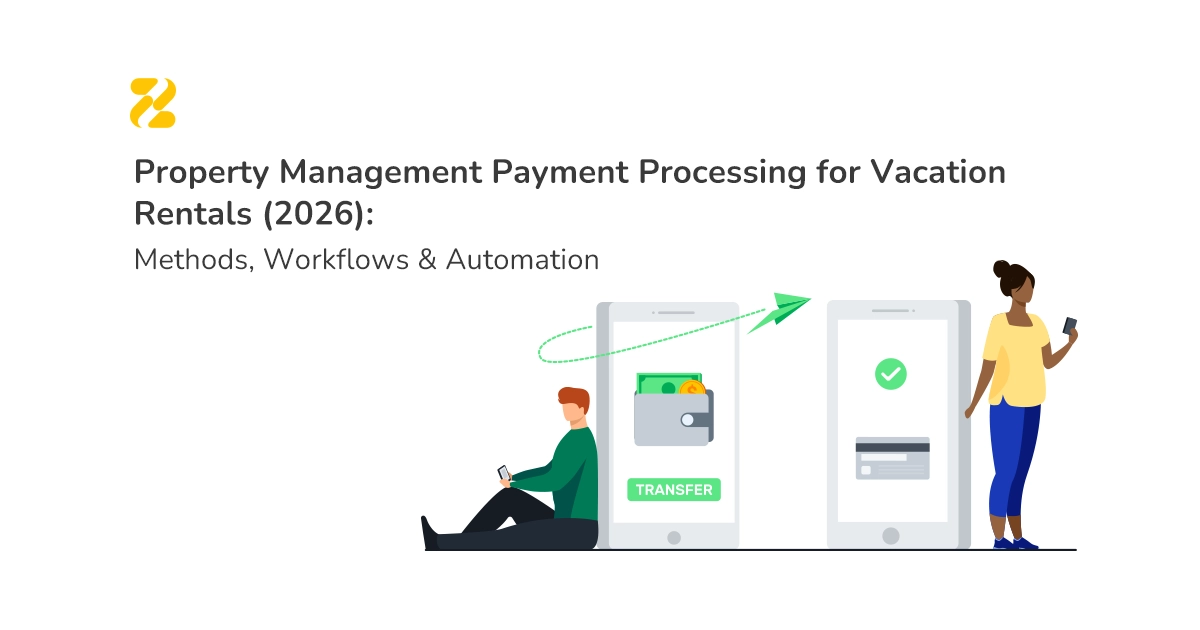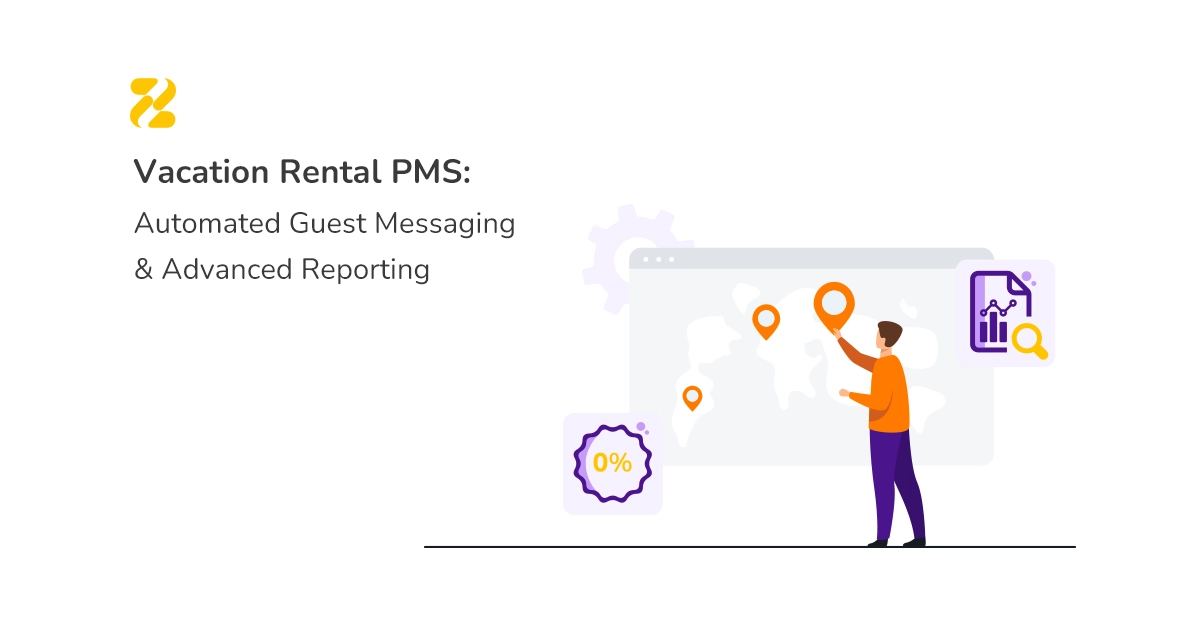Scaling an Airbnb business comes with exciting opportunities but also significant challenges. As hosts expand their portfolios, they must navigate issues like maintaining profitability, managing staff, and handling guest expectations. Understanding how to scale an Airbnb business successfully requires strategic planning, automation, and effective marketing.
This article covers the top challenges hosts face when scaling their Airbnb business and practical solutions to overcome them.
Table of Contents
How to Scale Airbnb Business: Top Challenges and Expert Solutions

1. Scaling Without Losing Profitability
Scaling Airbnb business operations too quickly can lead to operational inefficiencies, increased costs, and reduced profit margins. Some hosts add more properties without ensuring they have the necessary infrastructure, demand, or management systems to handle the growth effectively.
How to Overcome This Challenge:
- Expand Gradually: Instead of acquiring multiple properties at once, scale in phases. Analyse occupancy rates and profit margins before adding new listings.
- Choose Locations Strategically: Not all properties generate the same return. Use market research tools, such as AirDNA to identify high-demand areas with strong profitability potential.
- Optimise Existing Listings Before Expanding: Ensure that current properties are performing at their best before investing in new ones. This includes maximising occupancy, improving the guest experience, and reducing unnecessary costs.
- Monitor Key Performance Indicators (KPIs): Track important metrics like occupancy rate, average nightly rate, and RevPAR (Revenue Per Available Room) to assess business health.
A well-planned growth strategy ensures that scaling the Airbnb business leads to increased profitability rather than financial strain.
2. Managing Multiple Listings Efficiently
Scaling an Airbnb business from one or two properties to multiple listings increases workload. As the number of properties grows, managing bookings, guest communication, cleaning schedules, and maintenance becomes more complex. Without proper systems in place, this can lead to double bookings, slow responses to guests, and operational inefficiencies.
How to Overcome This Challenge:
- Use a Property Management System (PMS): Platforms like Zeevou help automate guest communication, sync calendars across multiple booking channels, and track performance, making scaling an Airbnb business more manageable.
- Automate Guest Messaging: Implement pre-set messages for check-in instructions, welcome notes, and post-stay reviews to maintain fast and professional communication.
- Centralise Cleaning and Maintenance: Use a cleaning app to schedule and manage cleaning teams efficiently. Implement a checklist system to ensure consistency.
- Hire a Virtual Assistant (VA): A VA can handle guest inquiries, booking updates, and basic administrative tasks, freeing up time for business growth.
By implementing these strategies, Airbnb hosts can maintain control over multiple listings while reducing stress and improving efficiency.
3. Maintaining a High-Quality Guest Experience
Scaling an Airbnb business while maintaining an excellent guest experience across all properties is challenging. A single bad review can impact future bookings, so maintaining cleanliness, responsiveness, and personalised touches is crucial.

How to Overcome This Challenge:
- Standardise Operations: Create a set of Standard Operating Procedures (SOPs) for check-in, cleaning, and guest communication to ensure consistency across all properties.
- Automate Communication: Use automated messages for confirmations, check-in instructions, and follow-ups while still allowing for personalised responses when needed.
- Hire and Train Reliable Cleaning Teams: A well-trained cleaning staff ensures that every property is spotless. Conduct random quality checks to maintain high standards.
- Use Smart Home Technology: Install smart locks for seamless self-check-ins, smart thermostats for comfort, and noise monitoring devices to prevent disturbances.
- Monitor and Act on Guest Feedback: Regularly review guest feedback and make necessary improvements to enhance their experience.
By prioritising guest satisfaction while scaling Airbnb business operations, hosts can build a strong reputation, leading to repeat bookings and long-term success.
4. Handling Finances and Cash Flow
When learning how to scale an Airbnb business, managing finances effectively is essential. As your Airbnb business grows, so do your expenses. More properties mean higher costs for cleaning, maintenance, utilities, software subscriptions, and staffing.
At the same time, income can be unpredictable due to seasonality, fluctuating demand, and unexpected cancellations. Without proper financial planning, hosts may struggle with cash flow issues, making it difficult to sustain and scale the business.
How to Overcome This Challenge:
- Use Budgeting and Accounting Tools: Platforms like QuickBooks and Xero help track income and expenses, generate financial reports, and ensure tax compliance.
- Implement Dynamic Pricing: Use PriceLabs, Beyond, or Wheelhouse to adjust rates based on demand in order to maximise revenue.
- Maintain a Financial Cushion: Set aside a portion of earnings for unexpected expenses, such as emergency repairs or last-minute cancellations.
- Diversify Income Streams: Relying only on Airbnb can be risky. Listing properties on Vrbo, Booking.com, or creating a direct booking website can provide a more stable income.
By staying on top of finances and planning for fluctuations, hosts can avoid cash flow issues and sustain long-term growth.
5. Legal and Regulatory Compliance
Understanding how to scale Airbnb business successfully also means navigating different laws and regulations, which vary by city, state, and country. Many hosts face challenges, such as short-term rental bans, zoning restrictions, licensing requirements, and tax obligations. Failing to comply can lead to hefty fines, lawsuits, or even forced shutdowns.

How to Overcome This Challenge:
- Research Local Laws Before Expanding: Each location has its own regulations regarding short-term rentals. Check with local authorities or consult legal professionals to understand zoning laws, permit requirements, and rental restrictions.
- Obtain Necessary Licenses and Permits: Some cities require hosts to register their properties, obtain business licenses, or apply for short-term rental permits. Ensure compliance before listing a new property.
- Stay Updated on Changing Regulations: Short-term rental laws are constantly evolving. Join local hosting communities and check Airbnb’s policy updates to stay informed.
- Have a Legal Backup Plan: If regulations tighten, consider shifting to mid-term (30+ days) or long-term rentals, which often have different legal requirements.
By proactively managing legal compliance, Airbnb hosts can avoid penalties and continue operating smoothly in different markets.
6. Finding and Managing Reliable Staff
As scaling your Airbnb business requires handling multiple properties, managing everything alone becomes overwhelming. A strong team – including cleaners, maintenance staff, co-hosts, and virtual assistants – ensures smooth operations. However, finding and keeping reliable staff can be a major challenge.
How to Overcome This Challenge:
- Streamline Hiring with Clear Job Descriptions: Define roles, responsibilities, and pay upfront to attract the right candidates. Check references and conduct trial shifts before committing long-term..
- Use Cleaning Maintenance Management Platforms: Apps like Turno help automate cleaning schedules, assign tasks, and ensure quality control.
- Train and Standardise Processes: Create a detailed checklist and training manual for cleaning, maintenance, and guest interactions. Provide video tutorials or in-person training sessions for new hires.
- Build a Backup Network: Have a list of backup cleaners and handymen in case your regular staff is unavailable. Consider working with professional cleaning and maintenance companies for reliability.
- Offer Competitive Pay and Incentives: Keeping good staff requires fair compensation, bonuses for excellent service, and a positive working environment.
By assembling and managing a strong team, Airbnb hosts can delegate tasks effectively and focus on scaling their business.
7. Marketing and Brand Differentiation
As more hosts enter the short-term rental market, competition grows. Simply listing a property on Airbnb is no longer enough to attract bookings. Without a strong marketing strategy and a unique brand identity, your listings can get lost among thousands of others, making scaling Airbnb business efforts more challenging.

How to Overcome This Challenge:
- Optimise Airbnb Listings for SEO: Use high-ranking keywords in your title and description to improve search visibility. Highlight unique features, such as “oceanfront view,” “pet-friendly,” or “luxury retreat.”
- Invest in High-Quality Photography: Listings with professional photos receive more views and bookings. Ensure bright lighting, clean staging, and multiple angles of key areas.
- Leverage Social Media Marketing: Promote your properties on Instagram, Facebook, and TikTok. Share guest testimonials, behind-the-scenes content, and local attractions to engage potential guests.
- Encourage Guest Reviews: More positive reviews boost your ranking on Airbnb and increase credibility. Send a friendly reminder to guests to leave a review after their stay.
- Offer Unique Experiences: Differentiate your brand by offering experiences like guided city tours, cooking classes, or themed stays (e.g., Harry Potter or wellness retreats).
By building a strong brand and marketing across multiple channels, Airbnb hosts can stand out in a crowded market and attract consistent bookings.
8. Managing Guest Expectations and Handling Difficult Guests
As your Airbnb business grows, you’ll encounter a wider variety of guests – some easygoing and others more demanding. Managing different personalities and needs effectively is essential for maintaining positive reviews and ensuring smooth operations.
Learning how to scale Airbnb business while maintaining guest satisfaction is key to earning high ratings and avoiding conflicts.
How to Overcome This Challenge:
- Set Clear House Rules: Clearly outline rules on noise levels, smoking, pets, and extra guests in your listing description and house manual to prevent misunderstandings.
- Use Automated Messaging for Consistency: Send pre-arrival messages with check-in instructions and reminders about house rules. Follow up during the stay to ensure guest satisfaction.
- Be Honest and Transparent in Listings: Accurately describe your property, amenities, and any potential drawbacks (e.g., no elevator, street noise) to set the right expectations.
- Have a Response Plan for Difficult Guests: In cases of property damage, rule violations, or disruptive behaviour, document incidents, contact Airbnb support, and, if necessary, involve local authorities.
By proactively managing expectations and resolving issues professionally, hosts can maintain positive guest experiences while scaling Airbnb business without risking their reputation.
9. Handling Seasonality and Market Fluctuations
A key challenge in scaling an Airbnb business is dealing with fluctuating demand. Short-term rental occupancy rates shift based on seasons, local events, and economic conditions. Without a proper strategy, slow seasons can lead to inconsistent income and low occupancy rates.
How to Overcome This Challenge:
- Adjust Pricing Dynamically: Use dynamic pricing tools to lower rates during off-peak seasons and maximise revenue during peak demand. Implement a system that automatically adjusts your rates (price, minimum stay, maximum stay, and availability) based on specific conditions you set.
- Offer Seasonal Promotions and Discounts: Encourage bookings during slow months with discounts, special packages (e.g., “Stay 3 nights, get 1 free”), or added perks like free breakfast or late check-out.
- Target Different Types of Guests Year-Round: Draw vacationers and tourists during peak season, and in the off-season, focus on business travellers, digital nomads, and long-term guests.
- Optimise Listings for Different Seasons: Update listing photos and descriptions based on the time of year (e.g., highlight fireplaces and cosy features in winter, outdoor spaces in summer).
By diversifying marketing strategies and adjusting pricing, Airbnb hosts can maintain a steady income even during slower periods.
Concluding Remarks
Scaling Airbnb business operations is an exciting but complex journey that requires strategic planning, efficient management, and adaptability. From maintaining profitability and managing multiple listings to ensuring high guest satisfaction and handling seasonality, hosts must tackle various challenges to achieve sustainable growth.
By leveraging automation, hiring reliable staff, optimising financial planning, and implementing strong marketing strategies, Airbnb hosts can scale their business successfully. The key is to expand gradually, maintain operational efficiency, and continuously improve the guest experience. With the right approach, scaling an Airbnb business can lead to increased revenue and greater market presence.
Want to simplify and automate your Airbnb business growth? Book a Free Consultation with Zeevou today and discover how our property management system can help you scale efficiently!
Image by pch.vector on Freepik.




